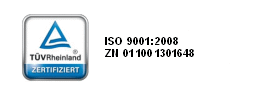
...your machining company
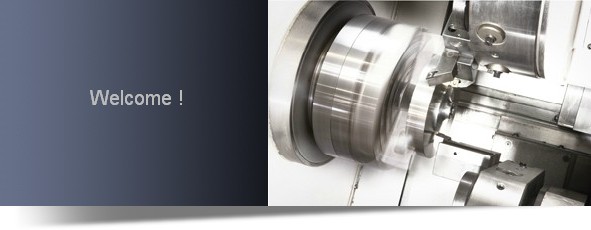
Welcome at the machining company
ZB
Zerspanungstechnik Boostedt in Germany
Our range of machining services includes conventional turning and milling, high-precision CNC turning,
high-precision CNC milling and sawing, all according to your drawing specifications.
Our service concept will inspire you. We are the professional partner for your needs around the mechanical
manufacturing.
Are you interested? Then look around here and get in contact with us!
2021-03-11
Maskinering in Tyskland
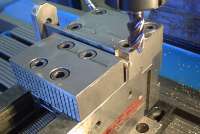
The separated cutting, which is called in accordance with DIN 8580 and shaping machining referred to in any technology of machining all machining operations in which the user-supplied material is brought into the programmed and the desired shape by metal material is removed in the form of chips. The manufacturing process is defined in DIN 8589 in Germany as machining and certified according to ISO.
Within the five major groups of industrial manufacturing processes (cutting, coating, grinding, hardening and lapping) the CNC machining is a computer-controlled machining process. The term CNC machining, milling or machining services is now generally used in the context of removing metal, although the provisional machining of all other tempered and resistant materials such as stainless steel, brass, bronze, aluminum, polyurethane and NBR and plastics is one of them. To the medium-industrialization and the accompanying development of the coincident series production has contributed significantly. From the automated milling machines and machining centers in the metal processing industry, today's profession of qualified workers and the developed cutting machine operator.
However, the manual machining and hard turning processes are cutting, so that they can be classified in the subgroup of advanced manufacturing technology in Germany and Hamburg. A basic principle of milling and turning based on the turning (CNC turning) and milling (CNC milling) tool in a dimensionally accurate, the polished surface of the workpiece and the subsequent removal of a thin layer of material by means of a measuring machine. The plant material must always be a little harder than the material processed by the chipper. Sufficient for processing relatively simple rotating stainless steel materials or inserts as starting material for the German CNC machining technology.
For harder workpieces special high tempered tool steel, diamond, tungsten carbide, WIDIA, sintered materials, cutting ceramic or silicon carbide are used as cutting tools. The parts to be milled or processed may have a well defined and controlled geometry, which is used for example for turning and cutting (CNC band saw for metal machining with own material stock), or by drilling into consideration, or it may be irregularly shaped, such as grinding and lapping, which can represent a machining with geometrically defined cutting tools not in the catchment areas of Kiel, Luebeck, Hamburg, Rostock and northern Germany.
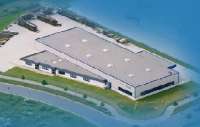
In the further course the production processes are planned in detail, in order to proceed in accordance with the economic, schedule and quality requirements into production. The machining technician (chipper) adapt the programs for numerically or computer controlled CNC machine tools and manufacturing systems and they monitor the production in the machining company in three layers. In multi-shift operation skills are also required concerning the quality management of CNC manufacturing, the job work, documentation and various safety devices to monitor a schedule execution of a contract. Other required skills are the maintenance and quality control of manufacturing systems, computer controlled measuring instruments based on non-contact basis (laser scanning) can be controlled by the operator.
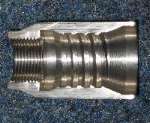
The milling head bears on the exact surface of the workpiece just as much material as was previously determined by the requirements of the customer. In order to ensure nevertheless proper milling, whether or not the rotational speed of the milling cutter of the milling part and the calculated feed must be set before any cutting operation in addition to the processing speed further. When machining milling parts there is a fundamental difference between two methods; namely the certified quality control on the one hand, and on the other hand, the monitoring by subsequent measurement, which is implemented by qualified staff of the machining company.

Precision machining services in Germany: CNC milling / turning
Neumuenster - Schleswig-Holstein - Hamburg - Mecklenburg-VorpommernMaskinering in Tyskland

Machining services
Implementation of all machining operations on CNC-controlled lathes (CNC turning) and milling machines (CNC milling), sawing on CNC band saws (CNC saws). The certified machining company in Neumuenster makes metals in wage labor and industrial contract manufacturing and production of small and large series of rotating parts and milling of all metals, castings and aluminum and plastics. The precision machining is performed in computer-controlled machining centers for the industry in Northern-Germany, this allows precision turning and milling and highly accurate production of precision turned parts in our machining company.The separated cutting, which is called in accordance with DIN 8580 and shaping machining referred to in any technology of machining all machining operations in which the user-supplied material is brought into the programmed and the desired shape by metal material is removed in the form of chips. The manufacturing process is defined in DIN 8589 in Germany as machining and certified according to ISO.
Within the five major groups of industrial manufacturing processes (cutting, coating, grinding, hardening and lapping) the CNC machining is a computer-controlled machining process. The term CNC machining, milling or machining services is now generally used in the context of removing metal, although the provisional machining of all other tempered and resistant materials such as stainless steel, brass, bronze, aluminum, polyurethane and NBR and plastics is one of them. To the medium-industrialization and the accompanying development of the coincident series production has contributed significantly. From the automated milling machines and machining centers in the metal processing industry, today's profession of qualified workers and the developed cutting machine operator.
However, the manual machining and hard turning processes are cutting, so that they can be classified in the subgroup of advanced manufacturing technology in Germany and Hamburg. A basic principle of milling and turning based on the turning (CNC turning) and milling (CNC milling) tool in a dimensionally accurate, the polished surface of the workpiece and the subsequent removal of a thin layer of material by means of a measuring machine. The plant material must always be a little harder than the material processed by the chipper. Sufficient for processing relatively simple rotating stainless steel materials or inserts as starting material for the German CNC machining technology.
For harder workpieces special high tempered tool steel, diamond, tungsten carbide, WIDIA, sintered materials, cutting ceramic or silicon carbide are used as cutting tools. The parts to be milled or processed may have a well defined and controlled geometry, which is used for example for turning and cutting (CNC band saw for metal machining with own material stock), or by drilling into consideration, or it may be irregularly shaped, such as grinding and lapping, which can represent a machining with geometrically defined cutting tools not in the catchment areas of Kiel, Luebeck, Hamburg, Rostock and northern Germany.

Machining
The machinist is directly involved in the production, planning and machining of components. Thus, configure both the individual as well as manufacturing for mass production and contract manufacturing, in implemented machining services and the control of them either conventional or other computer-controlled machine tools such as milling systems, rotating machinery systems, grinders, lathes and automatic boring machines. The minimum requirement for a professional qualification like an assessment and analysis of the technical feasibility of manufacturing jobs is completed, what will be used as a source of information, the construction drawings or technical documents in order to select the appropriate method of manufacturing.In the further course the production processes are planned in detail, in order to proceed in accordance with the economic, schedule and quality requirements into production. The machining technician (chipper) adapt the programs for numerically or computer controlled CNC machine tools and manufacturing systems and they monitor the production in the machining company in three layers. In multi-shift operation skills are also required concerning the quality management of CNC manufacturing, the job work, documentation and various safety devices to monitor a schedule execution of a contract. Other required skills are the maintenance and quality control of manufacturing systems, computer controlled measuring instruments based on non-contact basis (laser scanning) can be controlled by the operator.

CNC turning
Very sophisticated mechanical parts are manufactured using computer controlled lathes in a relatively short time in large numbers, using the technique of turning generally used with CNC (Computerized Numerical Control). With these machines, the programs are written by the operators themselves, which are read by the machine first and then subsequently reacted precisely. This can produce on the lathe (cnc lathe) more shapes than the former manual milling heads. Even curved or pyramidal and multi-dimensional forms are included in the automated turning processes so that mass production can be provided. For companies in Germany, which produce different workpieces in larger amounts, a turning center for manufacturing reasons is essential.CNC milling
From the blank is produced by milling a workpiece or more complex assemblies, the cast part in a multi-axis vice (jig) is clamped on a router table. The cutting tool, the cutter or cutter head, is gripped by hand into the threaded spindle and then fixed and later the carriage moves with the work piece in the direction of the cutter.The milling head bears on the exact surface of the workpiece just as much material as was previously determined by the requirements of the customer. In order to ensure nevertheless proper milling, whether or not the rotational speed of the milling cutter of the milling part and the calculated feed must be set before any cutting operation in addition to the processing speed further. When machining milling parts there is a fundamental difference between two methods; namely the certified quality control on the one hand, and on the other hand, the monitoring by subsequent measurement, which is implemented by qualified staff of the machining company.

